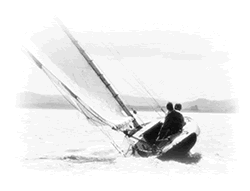 |
 These are some of the miscellaneous insurance available.
These are some of the miscellaneous insurance available.
|
|
A policy that provides additional limits over those purchased under your auto or homeowners
policy. It also provides coverages that might not be found in your
auto or homeowners
policy. An important coverage usually provided is personal injury coverage (libel, slander,
defamation of character). This is an important policy to help protect your assets and future
earning capacity. Most company require underlying limit of $300,000.
|

|
|
Your home is destroyed. You want to rebuild. Unfortunately, new building code requirements often add
a significant amount to the cost of rebuilding. This insurance helps cover these additional costs.
It will also compensate you for:
An undamaged portion of the your home, if it had to be demolished or removed.
The cost of demolition of the undamaged portion of the home.
|

|
|
If you own a second or vacation home, the property is not covered under the homeowners insurance policy
on your primary residence. You'll need homeowners insurance specifically for this second home.
|

|
|
If you own property that you do not occupy, a special homeowners insurance policy known as Rental Property
can cover the property. It's also sometimes called Dwelling Fire Coverage.
|

|
|
If you own items such as fine art, gun collections, antiques, jewelry, furs, business equipment
or other valuables, you may need additional coverage against damage, destruction and theft.
Most likely, the amount of coverage your homeowners insurance policy provides for items such as
these would be inadequate to replace them. To properly cover the
values of the items above, a different kind of policy is required
along with an updated appraisal by an authorized person. Ask the
agent for more details.
|

|
|
Generally, homeowners insurance does not insure your home business. Some policies cover
business equipment in the home. The limit depends on the type of
equipment covered. But such policy does not cover business-related liability or other losses.
If you run a business from your home, you may need both property and liability insurance, as well as
workers compensation coverage for the business.
|

|
|
If you are a condo owner, you would be interested to know your condo association has a master insurance
policy that covers the outside of the building's structure, including the roof and common areas such as
pools and sidewalks.
Often, a condo association's master insurance policy requires you, the condo owner,
to share a part of the loss if the building is damaged by perils such as fire,
lightning, vandalism or the weight of ice or snow. For example, if a fire destroys
a common area like a recreation room, association members share the loss.
|

|
|
If you own a boat you probably need to purchase a policy to
cover any damage that happens to it as well as liability
losses that you could cause while using it.
|

|
|
When you own an ATV (all-terrain vehicle), snowmobile, go cart, moped,
dirt bike or any other recreational vehicle not subject to registration,
you must insure it under a recreational vehicle policy to provide coverage for
damage to the vehicle as well as damage to others that the vehicle causes.
|
 |
|
If you live in an area where there's a history of earthquakes, you should
consider this coverage. It covers earthquake damage to your home and its
contents. How close you live to an earthquake zone is the major factor in
determining the cost of this insurance.
|

|
|
Property policies do not cover damage by floods. If you live in a flood-prone area -
or anywhere near water you should purchase a flood policy to cover damage
caused by flooding.
Federal law requires most mortgage lenders to make sure you have this insurance if you live in an area
considered to have special flood hazards. Official maps used by the Federal Emergency Management Agency (FEMA)
show whether you need this insurance. Flood insurance is offered by insurance agent and insurance carrier
through a program provided by the National Flood Insurance Program, which is managed by FEMA.
|

|
|
This coverage is necessary when you own a dwelling that contains one to four
apartments but you do NOT live in it. You cannot have a homeowners policy if
you do not live in the structure. When you own dwellings to rent to other people
a dwelling fire policy may be necessary to protect your financial interest
in the building or in the contents located at the building.
|

|
Bonds guarantee that an obligation will be filfilled. There are 2 types of bonds
available: fidelity bonds and
surety bonds.
- Fidelity bond is a bond intended to guarantee that the bonded
person will handle the money and/or property of the obligee with
fidelity at all times.
- Surety bond is a bond intended to guarantee the performance of a
service by the principal for the obligee. These kinds of bonds
operate on the general principle that every bonded individual will
perform as promised. These bonds are backed by the surety company.
In addition to the above, there are many endorsements that can be added
to your policies to fine-tune insurance coverage to fit your needs.
There are also other policies that fit your needs that are not included
in this discussion. Please feel free to talk with us for further
information about any of the coverages discussed.
|

|
|
|

|